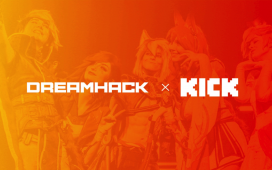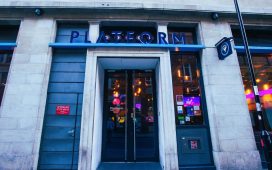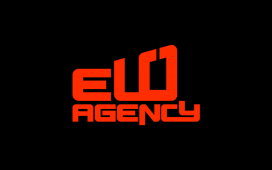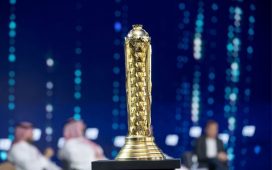As Q1 of 2019 closes out, the first hurdle is passed for a year in esports that, like all others, will bring about several failures and success stories. For now, the relaunch of the League of Legends European Championship (LEC) is set to be one of the latter’s highlights. A high-cost undertaking for its 10 teams, this restructure drew in over €90M ($101M USD) in entry fees, attracted extensive partnerships with non-endemic brands such as Kia, Shell, and Footlocker, and has seen a marked increase in audience interest in the six-year-old esports circuit.
“Across Europe, we have this partnership team that is meeting people, introducing esports, League of Legends, and the LEC. Explaining it and educating brands on the opportunity,” Alban Dechelotte, head of sponsorship and business development for Riot Games ![]()
Recently, LEC Business Development Manager Romain Bigeard mentioned that the League of Legends publisher had gauged the interest of 350 brands in the run-up to the season launch. “We had something like 150 guests at the [2018 Summer Finals] event in Madrid that wanted to see it in real life,” said Dechelotte.
“In football, you never have someone say ‘thank you so much for putting your logo on my jersey.’”
“It’s not like we are the jury and we judge if the brands are good enough,” he continued. “It’s a very mature dialogue between brands that see an opportunity for their marketing objectives, and us trying to analyze what this brand will be ready to do for players in terms of bringing an additional experience, and trying to find a fit between the two.”
Dechelotte joined Riot in March of 2018, following several years in a senior marketing position at Coca-Cola. Having sat on the other side of the table, he acknowledges that his approach to brands is more client-friendly, adding that companies don’t simply partner with Riot; they connect with the publisher’s audience.
“People that come to watch football in a stadium, they usually don’t come saying ‘I’m gonna come watch banners.’ They come to watch the game.” he explained. “Signing a sponsorship in esports is like hoping for a miracle. The fact that someone working for a brand is in a position to say ‘I got the budget, I understand what this is about, I think this in line with my marketing goals, and by the way, I’m not going to change roles after six months so you have to do it again.’”
The integration of the LEC’s new commercial partners has seen standard in-game moments, such as the “First Blood” or “Baron Power Play,”packaged and sold to sponsors. While these may seem like odd naming rights to outsiders, they are key moments that players at home can instantly recognize and associate with. “We don’t want to create content that is not useful, meaningful, or authentic to the players,” said Dechelotte. “All these segments make sense because then we sell it to a brand that can elevate the story, and make it part of their marketing.”
“I think some of the brands that have decided to trust us, to give us this…not a blank check, but at least the trust that we know our community well.” Dechelotte noted that one of the most rewarding parts of his job is seeing fans in the Twitch chat or online forums actually expressing gratitude to companies for supporting the league. “In football, you never have someone say ‘thank you so much for putting your logo on my jersey.’”
“People that come to watch football in a stadium, they usually don’t come saying ‘I’m gonna come watch banners.’ They come to watch the game.”
One of the lighter, less obvious changes to European League of Legends has been the creation of more complementary content to the game-day broadcasts. In the “mediocre rap battle,” commentators Daniel “Drakos” Drakos and Andrew “Vedius” Day rhyme in favor of their favorite superteam in the competition. In “Between 2 Iverns,” Christy “Ender” Frierson subtly roasts commentators and team owners in a mock interview format.
These segments are quite high-level in terms of knowledge, requiring the viewer to be familiar with League of Legends and many years worth of rivalry history. “My perception is that we want to give more reason to players to become fans of esports,” said Dechelotte “We have many more players today than viewers. That’s an insane position to be in. That’s the opposite of a traditional sport.”
“We have the potential of growing our sport by two or three times just by addressing this simple challenge. Let’s give players more reasons to become fans. It’s not only about competition and being elite, it’s about entertainment and education.”
Want to hear more about sponsorship and business development in esports? Alban Dechelotte will be a speaker at the HIVE esports business conference in Berlin on April 11, 2019. The first international esports business conference in Europe’s capital of esports. An unprecedented conference format featuring thought leaders of industries adjacent to esports sharing their insights. Click here to reserve your seat!














